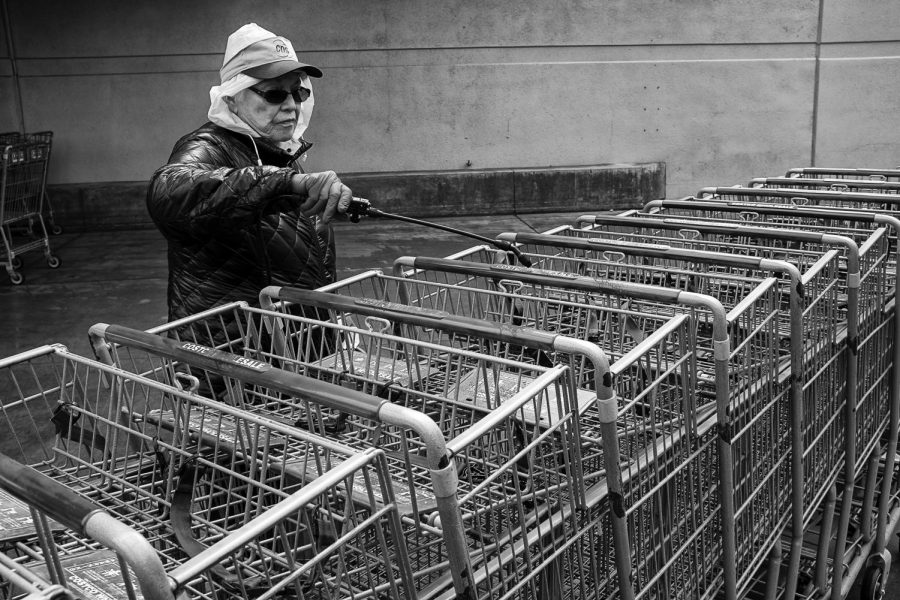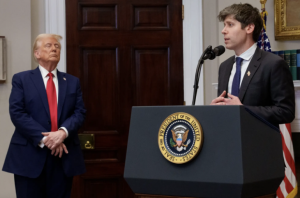University Library to create community archive in light of pandemic
April 29, 2020
The reverberations of COVID-19 are far and wide, but much can also be said for how communities across the world respond to their new reality. One of our own campus entities is aiming to document that very response on a communal level.
Headed by the Special Collections department of CSUSM’s University Library, Together/Apart: The Community Memory Archive aims to document our community’s reaction to the COVID-19 pandemic. The archive is community-driven and its creators hope that CSUSM’s students, faculty, staff and administration can aid future researchers in understanding our lived experiences during the pandemic.
Speaking for his department and other collaborating library departments, Head of Special Collections Sean Visintainer said, “Together/Apart came to fruition because as archivists, we need to always be aware of monumental events as they happen, and to be ready to collect in the moment, with the idea that today’s lived experience is tomorrow’s historical record, as long as we can get it documented and preserved.”
One way people can contribute to the archive is by filling out questionnaires, which can be found on the Together/Apart website.
“The first questionnaire is geared towards anyone that lives, works, and/or studies in North San Diego County, and consists of six optional questions about the collaborator’s experience so far during the COVID-19 pandemic,” said Visintainer. “The second questionnaire is geared towards faculty, and contains optional questions intended to further [reflect] about the experience of moving into an all-virtual teaching environment.”
Collaborators can also upload artwork, photos, videos, social media posts or related creative mediums as digital files. Visintainer emphasized that the archive does not need such files to be free of grammatical errors or polished works of art. What matters to the archive is authentic contributions that manifest how contributors and those around them are interacting with the contemporary climate.
Physical items such as journals and artwork can be donated to the University Library as well.
According to Visintainer, Documenting Ferguson, a collection created by Washington University in St. Louis, was an initiative that Together/Apart looked to as a guide, “in terms of how to structure a project geared around the documentation of a momentous event while it is happening.”
Construction of the archive has not come without its fair share of challenges.
“…there was the technical side of things to figure out,” said Visintainer. “What software do we use, how do we facilitate the transfer of information? How do we store it? We’ve figured out those issues, with a big assist from our Library Technology Implementation and Design department’s help.”
Visintainer and his colleagues also needed to create content for the website and figure out how the questionnaire would be structured.
The creation and development of Together/Apart has moved with haste and adopted a “build it while we fly” approach according to Visintainer, who gave praise to those within his organization for being able to work at pace.
However, the fast pace nature of the work has proven to be a challenge.
“…we haven’t been able to do the pre-project planning that normally comes with an initiative like this, and we’re still thinking through some things, like allowing contributors to be anonymous,” said Visintainer.
“We want to make sure that what we do with contributions to the archive is respectful to the contributors, so we’re going to move slowly and conservatively with getting this information out to the public, both in as an archival collection and in any terms of any future contextualization, like with an exhibition,” Visinstainer said.
The ultimate legacy for Together/Apart is to create an archival collection that will be of use to generations of future researchers within the Special Collections department. Ideally, researchers will have access to a vivid, introspective look into how our local community took to the matter of COVID-19 .
Visintainer said that on a personal level, “[the project] has been therapeutic for me, working on creating Together/Apart, and I hope that community members that collaborate with us will also find it helpful in that way as well.”






